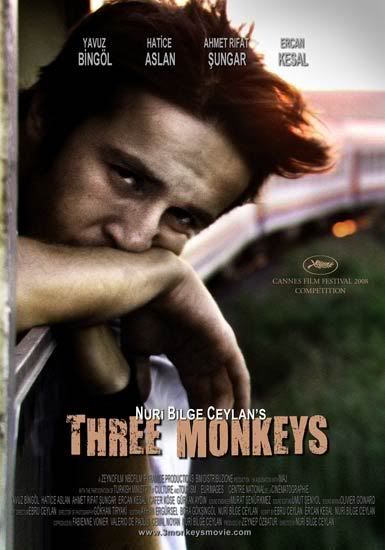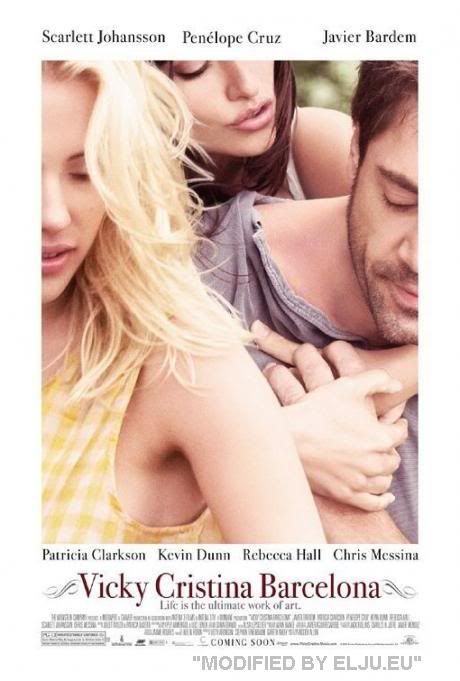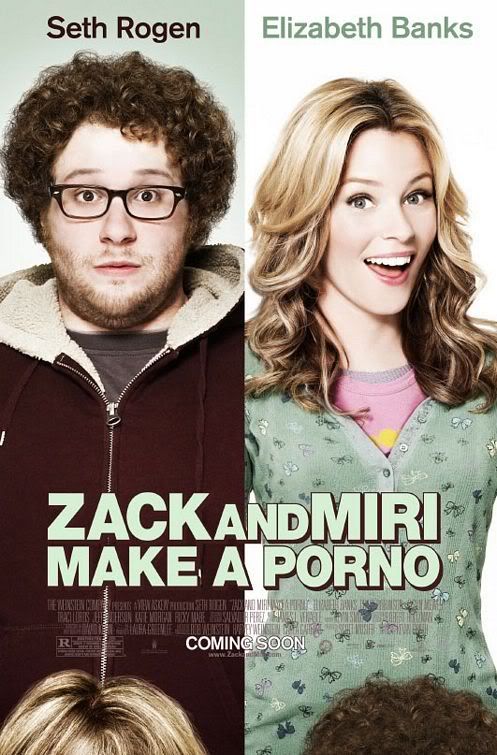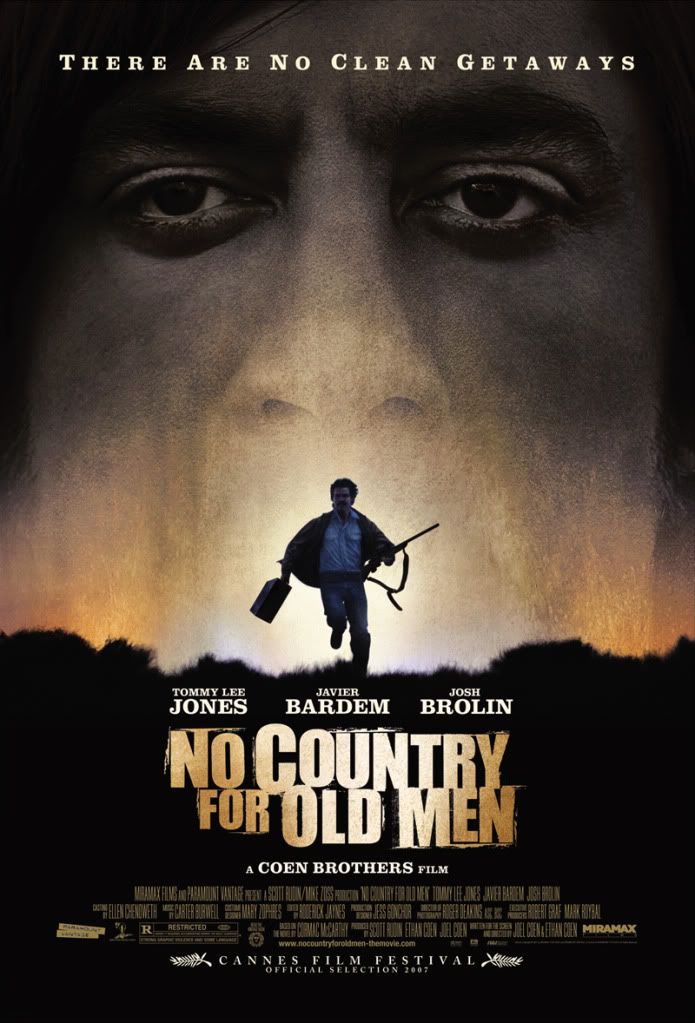In hope of turning this site into a personal advocate site for the principles of psychology (and the marriage of that with cinema), a discipline that I am indebted to, I will chronicle my own process of growth as an anecdotal exhibit to psychological principles at work. I should note that I also practise therapy on top of being a student of psychology. My view of psychology is that of use: how do I turn what I learn into something useful for the people, and for myself?
My personal belief when it comes to personality and acceptance is that the more I have issues within myself, the less I would be likely to accept those in others. When I see a particularly unforgiving individual, I know how hard it must be for that particular individual to deal with him/herself. As I grow more accepting of the different parts of the self, I find myself in the position of awe and acceptance of others. It has become unusual for me to be repulsed by any particular personality.
It then comes as a bit of a surprise when recently, I've found myself grappling with a particular person, struggling to find within myself the ability or willingness to let go of my repulsion of said person. So I turned to Jungian shadow principle, determined to find out for myself what this was really a reflection of. The following is my process work, using the principle of Jungian shadow archetype to extract from my reaction an understanding of my blindspot.
Before we go into the details of my struggle, I should explain briefly what a Jungian shadow is and how it translates to real life. According to the Swiss psychiatrist Carl Jung, one of the towering figures in the psychoanalytic branch of psychology, there are four/five (depending on your grouping of anima/animus) basic archetypes that everyone carries with him/her: the anima/animus (speaks to identified gender), the persona (the public, social front), the self (regulating entity - some similarities to Freud's ego), and the shadow (what lurks unconsciously). For this particular journey, we're interested in the Shadow, the part that lies in the unconscious, the part that we don't want to associate with ourselves. The more repressed this part, the denser it is to parse. The shadow does not only contain our dark side, so to speak, but also a light side that could be the seat of our creativity.
The Shadow presents itself to us through dreams, and in real life, through people we find to have particularly attractive, repulsive or irritating characters. It dictates a pattern of attraction and repulsion over time. Who do you tend to find yourself drawn to? Which persons just push the wrong buttons for you? These are the light and dark sides of our shadow. Opposites may attract, but only on the surface - underneath, these opposites actually complement each other's shadow. If you find a fellow particularly repulsive because he's 'an arrogant bastard,' and yet you see yourself being 'the big person,' judging others according to a strict moral compass you have devised to privilege your judgment, then aren't you submitting to moral arrogance?
As I work on embracing all parts of me, I have ceased to find people irritating on at least some level. Being able to work with anyone, to find an 'in' with people, is what I'm trying to do in my professional space. I have been trying to work on not breaking people's fence down, to allow people their defenses. Because I notice behaviour as a reflection of their internal self reflection, I have to be careful as not to pierce their defense and let them know I see them as they see them. I've been able to engage in the process of keeping their persona in tact when we interact so as not to alarm them. This is how you get people to show you who they are; the implicit responsibility is that you don't use your 'in' to tear them apart.
I've been successful at finding at least one part of a person fascinating and of interest to me. This keeps me sincere in my interaction with others: I genuinely value whatever I find in them that's worth my effort to know them. I operate on the principle that you can't fake ingenuity: people are smarter than you think, and they can sense when someone is just faking it. In the past few months, as I came to share work space with a young man, I find myself in a particularly puzzling position: for the life of me, I can not find it in me to like any part of him! It agonized me to work with him, and it agonized me further that it was that difficult for me to be around him. I knew that he represented something that I must hate within myself, as the Jungian Shadow would dictate, but what?
After months of mulling over possibilities, I think I have finally hit the nail on the head. When trying to analyze your own reaction, it helps to arrange the most to least repulsive characteristics of the person. I knew I couldn't find any part of him that was appealing to me, so what was it about him that irritated me the most?
At first, I thought it was the fact that he ingratiated and functioned according to a hierarchical order. In plain English, he followed the leader to the T, and saw himself as either above or below others. This meant being a 'yes' man to the boss and delegating activities to those below him. Why would this irritate me? It is a smart way of moving about the world, and I can't blame him for strategizing in this way, considering his background (authoritarian parenting, issues with women in authority, and bullied past). Many people have done this; he wasn't the only one. It irritated me because I saw myself as someone not inferior to anyone else. He may have triggered the snobby part of me that I have learned to be at peace with, simply by not thinking of how others are above or below me. I obviously think I'm too good to function below anyone, or of inferior class. He reminded me of a hierarchy I may be working in, and I didn't want to be where he was. It made me feel bad about the fact that we were working in the same arena, and this, for some time, depressed my own value of my work. He wasn't smart or interesting or wise enough to be in the same place as I was - this is my arrogance. But this can't be it: I'm quite at peace with arrogance. I see it as my Achilles' heel, but I have no intention of smoothing it over, or getting rid of it. I have channeled my arrogance to be about my pride for a worthy self, and that's how I see others' arrogance too. So this trigger was but one part of the package. I didn't like it, but it wasn't the whole story.
Then I thought of how much of a fearful person he was. I reason that a fearful person is an unreliable person: s/he will run for cover first. There will be no backing-up. Does this mean I think of myself a coward and I hate that I am? Perhaps it is no coincidence that I am drawn to courage, to those with strong principles. I am repulsed by the weaselly, as they can not be relied upon in dangerous times. They can not be trusted to not stab you behind the back, for their own perceived safety or advancement. More than an interest for the self, the fearful is paranoid about their own place in the world, and will likely do things to reinforce their position, even at the expense of someone else. Someone pointed out to me that I have no reason to assume I would be a coward in tough times - I have not yet been tested in dark water, so I can't jump to any conclusion either way! I do empathize with the survival instinct, the need to do anything to survive, to exist. As someone who's constantly mindful of our existential issue, I believe that I may just put my own survival ahead of everything else, based on my fear of non-existence. However, seeing that one simply can not know what one would do under duress, unless one is under duress, I don't actually focus on this part too much, never mind hating it to the point of projecting it on someone else and hating him/her for it. Another force may be at work here: I'm very trusting of people's good intention, and I don't want to be on surveillance, looking out for how others may hurt me. With him around, I can not be sure when I would be thrown in the way of danger, figuratively speaking. I don't want to be a fearful creature on constant alert - this may be closer to why this part of him would irritate me so: I don't want to become him, by virtue of him being around me. Still, this was not the whole story.
What's next? What's the problem that ties into my other known issues?
What irritated most to me about him came into light when someone else made an observation that he only learned specific solutions to specific problems, with no attempt at generalizing solutions to other similar problems. This fell in line with my observation that there seemed to be no processing going on; he simply parroted what was told to him, with no individual imprints or signs of individual processing involved. In addition, I caught someone giving stock answers a few days ago, and they gave me a slight pause. In tying all of these together, a picture of what really was at work here emerged: the individual stamp. In his case, it was the lack thereof. There, laid in bare, was my Shadow.
A common thread to all my attraction and repulsion is that of individuality, a stamp of some sort of originality. I need to interact with the authentic person, in whatever form. This isn't about being around the most amazing people - it's about interacting with someone who isn't just a vessel for others' imprints, who isn't a stock person with ready stock responses to parrot. To extrapolate on this need to see some actual processing at work, I see how this relates to my love of the element of surprise: it is outside of a known perceived pattern. As a consequence, I am enamoured of those who can surprise me, who show me something I have not previously thought of, or seen. Great wordsmiths, comedians, intellectuals: they are all particular magnets of attraction to me for this reason. I can handle strong, commanding personalities, even if they are harsh or difficult to be with, because they interest me in their authentic expressions. By authentic, I don't mean honesty - people don't walk around without some sort of compromises about how much of themselves they'd put out there. I mean: "is there evidence of someone claiming 'here I am!' in that body?" Because that's what it comes down to me: a validation of being 'one'.
This young man resigned to being a vessel, and this very idea repulsed me because of my own fear that I was one, too. Secretly, perhaps, I think that I'm just like everyone else, parroting what I learned, making jokes the rest of humanity already went over a million times. I don't write as many film reviews anymore, probably because of my assessment that "there are just way too many film reviews already, why would anyone want to read one more?" Considering how I see myself - someone unlike anyone else, an entity exclaiming a unique existence in time and space - this dark part of the Shadow can be quite crippling.
Of course, seeing that the Shadow is also the source of creativity, I'm pushed to stamp my own approval on everything that passes by me. I refrain from repeating what I've seen or read without processing it through and adding my own assessment of it. I try to spin an angle on whatever writing I do, film reviews included (hence the existence of this site). I value my emotional experience and reaction, because it's my way of making sure what comes out of me is a part of an actual being. The desire to be "one" competes with the fear of not being all that original or unique, expressing most clearly in my aspiration in the comedic arena. Great comedy requires an understanding of patterns and the ability to step just outside for a little while. So I fear that I'm not funny, and I strive to be funny, all at the same time.
This particular issue ties to the overall arc of what drives and deters me: existential fear. In order for an existential fear to be intense as it is in me, there has to be a distinct and overpowering sense of one self. If the self is transient, the fear should cease to be intense, since the firmer the self, the more at stake existence would be to such an entity. I currently have no resolution to my firm self - it just thinks it is one distinct being, and it really wants to be here.
As you can see, working through my own reaction to an irritable force has helped me learn more about my own process. Thanks to this individual, I now am more aware of my Shadow. I know I'm particularly irritated by empty vessels and stock expressions, because that's what I fear I am, not all that particularly different or unique. All the same, it drives me to be more of an authentic and creative person. While it is easier for us to look at what we're drawn to and see something of ourselves in our attraction, it is harder to see ourselves in those we despise. The next time someone pushes your button, you can ask yourself, is this where my Shadow lies? What part of this person that embodies my projected fear? The person whom you hate so much may hold the key to the discovery of what dwells in your heart of darkness.
Read More...
Summary only...
 Subscribe
Subscribe











